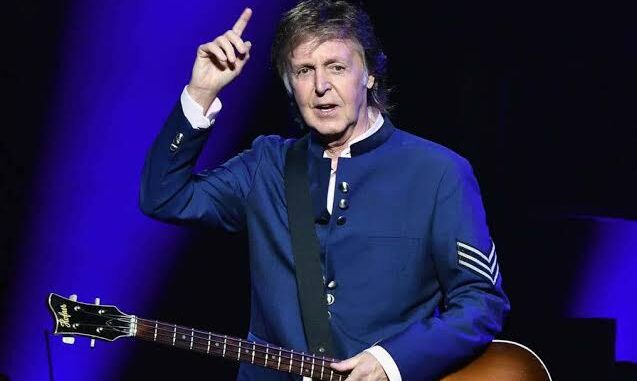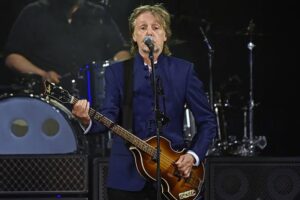
Beatles Bombshell: Paul McCartney Felt Betrayed as John, George, and Ringo United Against Him
The breakup of The Beatles remains one of the most seismic moments in music history — and at the heart of it was a growing sense of betrayal, tension, and emotional isolation. For Paul McCartney, what began as creative friction slowly evolved into something much deeper and more painful: a feeling of being abandoned by the very bandmates he once considered brothers.
By the late 1960s, The Beatles were no longer the tight-knit group that stormed the world with hits like “She Loves You” and “I Want to Hold Your Hand.” Behind the scenes, relationships were strained. John Lennon was increasingly distant, wrapped in his new partnership with Yoko Ono. George Harrison, long relegated to the background, was fighting for his artistic voice. Ringo Starr was caught in the middle, often uncomfortable with the rising internal tension.
In contrast, Paul McCartney was still pushing forward — perhaps too hard. He tried to hold the band together, often taking the lead in organizing recording sessions, pushing projects forward, and keeping the group on track. But what he saw as responsibility, others began to see as control.

Tensions boiled over during the making of Let It Be and Abbey Road. Creative clashes were frequent. Resentments that had quietly simmered for years came to the surface. John, George, and Ringo began forming their own alliance, often pushing back against what they perceived as Paul’s domineering nature. For McCartney, who had always been seen as the “melodic heart” of the band, this rejection was both shocking and devastating.
What stung most was the shift in loyalty. Paul later confessed in interviews that he felt genuinely ganged up on. While trying to preserve the band’s legacy and identity, he found himself outvoted and outnumbered on key decisions. He opposed the hiring of business manager Allen Klein, while the other three welcomed him. Paul wanted to keep the Beatles’ company, Apple Corps, under family control — even proposing his father-in-law Lee Eastman manage their affairs — but was overruled.
The rejection was more than business. It was personal. Paul McCartney, the man who had written “Yesterday,” “Hey Jude,” and countless other masterpieces, was suddenly the outsider in the band he helped build. In one of the group’s final meetings, George Harrison reportedly mocked Paul’s enthusiasm for future projects, while Lennon made it clear he was ready to leave.
By 1970, it was Paul — ironically the one who most wanted the band to stay together — who made the breakup public. Through a self-written press release that accompanied his debut solo album, McCartney, he answered questions about whether The Beatles were done. The message was clear: yes, they were.
The fallout was brutal. Fans blamed Paul for breaking up the band. The British press turned against him. His relationships with John, George, and Ringo were fractured, with Lennon famously lashing out in interviews and songs like “How Do You Sleep?” — a thinly veiled attack on McCartney’s character and musical talent.
Behind closed doors, Paul was crumbling. He has since revealed that the months following the breakup plunged him into a deep depression. He drank heavily. He withdrew from public life and even questioned whether his music career was over. What hurt most was the sense that the three people who had stood beside him through the wildest ride in music history had now left him behind.
Years later, in reflective interviews, Paul spoke with more compassion about his former bandmates. He acknowledged his own flaws, admitted that he could be overbearing, and ultimately forgave them. But the wound from those final Beatles years never fully disappeared.
The Beatles’ breakup was not just a professional split. It was a personal collapse, an emotional implosion of four young men who had changed the world together and didn’t know how to let go. For Paul McCartney, it was the betrayal he never saw coming — and the silence from his closest friends that echoed the loudest.